Acclaimed author and activist bell hooks’ third residency at The New School lasted from October 3 to October 10, and coincided with the 20th anniversary of the publication of her book, “Teaching to Transgress: Education as a Practice of Freedom.” hooks (who does not capitalize her name) was joined by an impressive list of fellow activists and intellectuals, including literary critic Samuel Delany and philosopher Cornel West, in a series of discussions about transgression. In two of the best-attended events, she spoke with feminist Gloria Steinem and LGTBQ activist and trans actress Laverne Cox, best known for her role on Orange Is The New Black.
“Having bell hooks on campus for a week, during which she did 10 events, is a powerful experience for our community as she urges us again and again to decolonize our minds,” Stephanie Browner, dean of Eugene Lang college, said in an email to the New School Free Press. Browner added that she regarded this as the most successful of all hook’s residencies because of the dramatic increase of New School Students in attendance.
Not everyone in attendance was as pleased. “I would’ve enjoyed [hooks’ discussion with former vice president and publishing director of Routledge, William Germano] more if her language hadn’t been as troublesome to me,” said Eli Condon, a first-year Parsons student who identifies as trans. “It kind of like ruined the talk for me.” Condon added: “It’s like she uses all this language that like in some cases she doesn’t really have the right to use.”
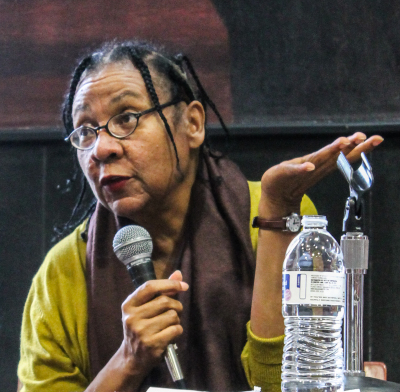
Throughout the residency, hooks focused on transgressions in multiple intersecting fields including race, gender, sexual identity, feminism, oppression, misogyny and the patriarchy. Teaching to transgress means “having an analysis about the ways that educational culture today (both in curricular content and pedagogical style) tends to reproduce what hooks calls ‘practices of domination’ and ‘rituals of control’,” said T.L. Cowan, a Media Studies professor at Lang. “Basically [it’s a] curriculum dominated by what white people and men in the Global North think, write, do and make and the model of teaching that expects students to be still and quiet and to absorb and regurgitate what the teacher teaches.”
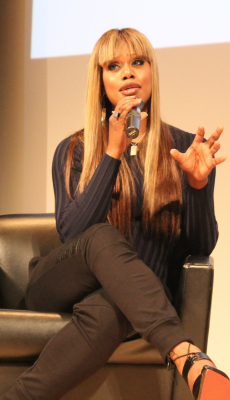
One sticking point for Condon and others was what they saw as hooks’ lack of sensitivity to her language while talking about trans-identifying people. As an example Condon pointed to hooks’ use of the term “transexuals” to refer to the whole trans community, arguing that the term is now regarded as derogatory and not something trans people identify with. “It seemed to me and to others that she, bell hooks, had been using it describe like trans people as a whole, which is when it is problematic, ”said Condon.
“I was just wondering, as a trans person myself, what was your decision behind using that word and what are your feelings on that?” Condon asked hooks on Tuesday evening.
“Well usually my feelings on using a word is, am I mirroring the word I hear the person using to describe themselves,”replied hooks, “and in those cases thats what I was doing, now I don’t know if that would be how Sophia’s character [played by Laverne Cox in “Orange is the New Black”] would describe herself, so there you have it. ”
When Cox jumped in to say she had just gotten a tweet about hooks’ use of the term transexual, Condon told Cox that they had sent that tweet.
“Oh! That was you? Hey! Work!,” Cox said.
“Language is also a place of struggle, to quote bell hooks from Yearning, and language is really, for trans folks, is this highly contentious place… theres a lot of trans folks that don’t like the word transgender and they identify as transexual. They feel like they don’t want to be under this umbrella term that’s inclusive of all people who are gender non-conforming or gender variant. …[T]heres a lot of people who embrace the word transexual and some people think that it’s antiquated and it should not be used anymore… so I really err with ms. hooks in that it really is about what the individual likes to call themselves…”
During her discussion with Laverne Cox, hooks pushed back against the notion of creating a completely “safe place” to converse in that Cox referred to. “I’m actually critical of the notion of safety in my work,” she said. “What I want is for people to feel comfortable in the circumstance of risk. I think that if we wait for safety the bell hooks that thought she couldn’t get on stage with Janet Mock [hooks had a dialog with Mock during the previous residency] would never have gotten on that stage. The bell hooks that was afraid of, ‘What if I use the wrong word, what if I say the wrong thing’–I would’ve stopped myself…”
“I’m very interested in what does it mean for us to cultivate together community that allows for risk knowing someone outside your boundaries, the risk that is love, there is no love that does not involve risk,” hooks said.
After the residency, on Thursday October 16, a number of student groups– Students of the African Diaspora, The New School Feminist Collective, Asian Student Collective at The New School, SAS-Sisters Art Salon and The Office for Social Justice Initiatives–gathered for an open discussion titled, “Unpacking bell hooks #havingfeelings.”
“What a lot of people have been talking about here has been about taking what you say and putting it into action,” said Renee Harrison, a freshman at the New School for Drama. The majority of students at the discussion felt hooks should have known better than to use “transexual” as an all-encompassing term, all the more because she literally wrote the book on feminism and transgression. Others thought that hooks might have intentionally used provocative language to keep conversations about the residency and transgressions going after she left.
The New School recorded most of the talks, to watch them on TNS’s youtube channel click the links below!
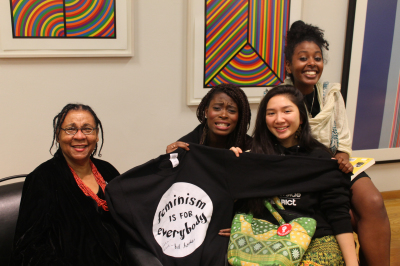
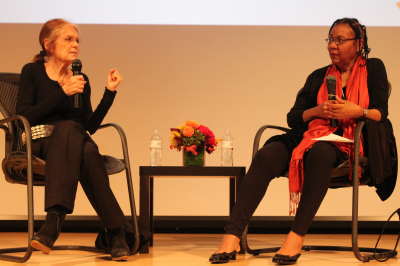
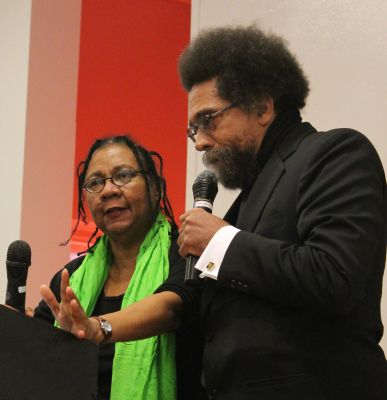
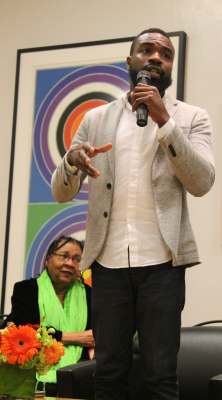
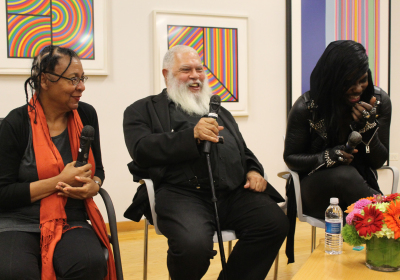
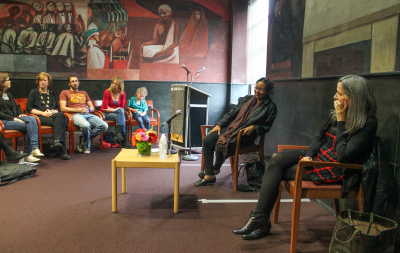
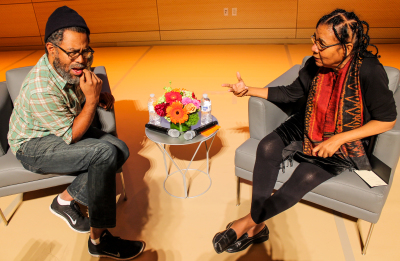
Shea Carmen Swan is a junior at Lang, majoring in Journalism + Design, minoring in Gender Studies. With 4 semesters of Free Press under her belt, she enjoys writing all things LGBTQIA and currently writes for Posture Magazine, a queer arts publication. Kyriacrchy.wordpress.com & Soilscript.wordpress.com host most of her literary work.


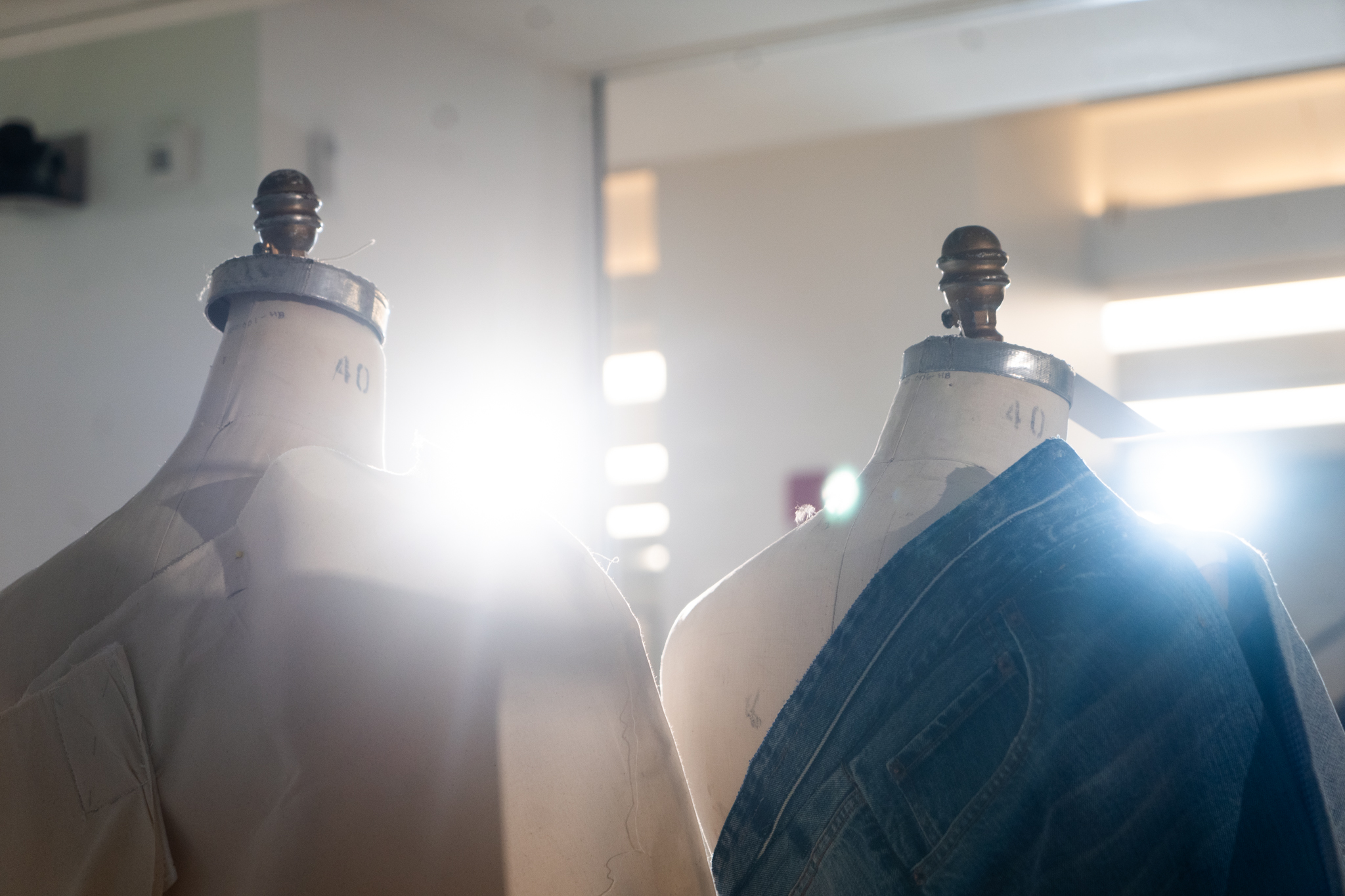
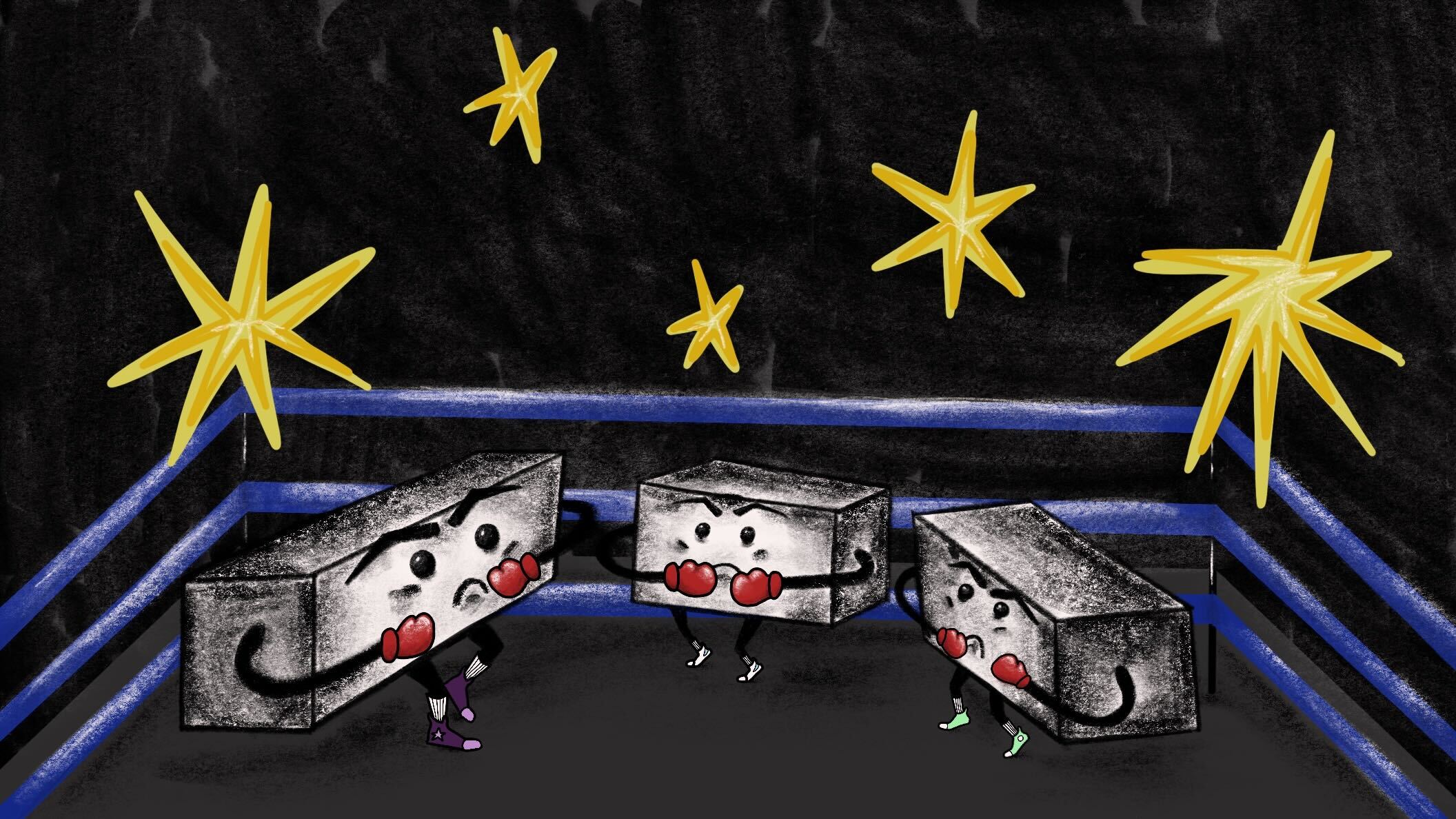

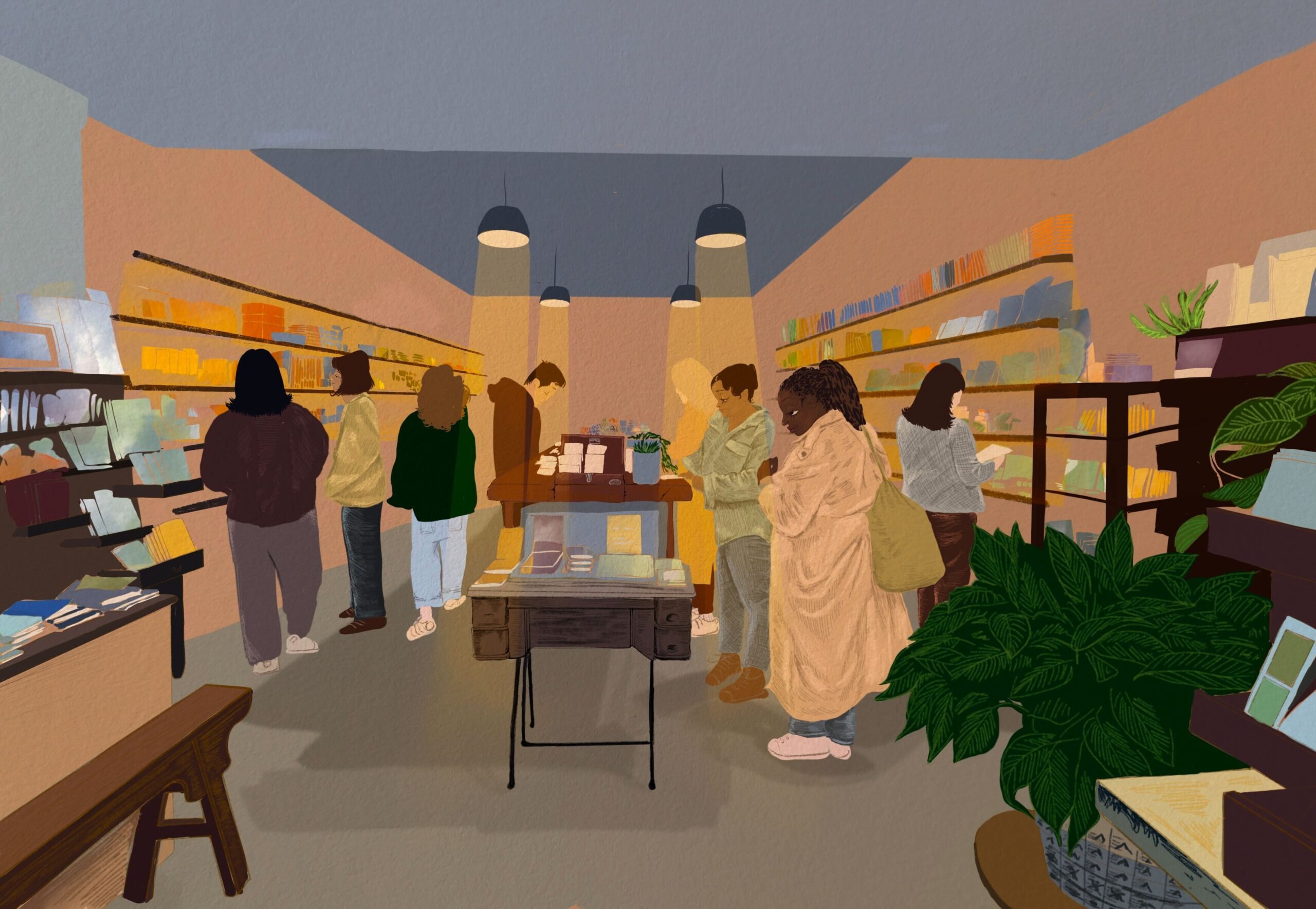
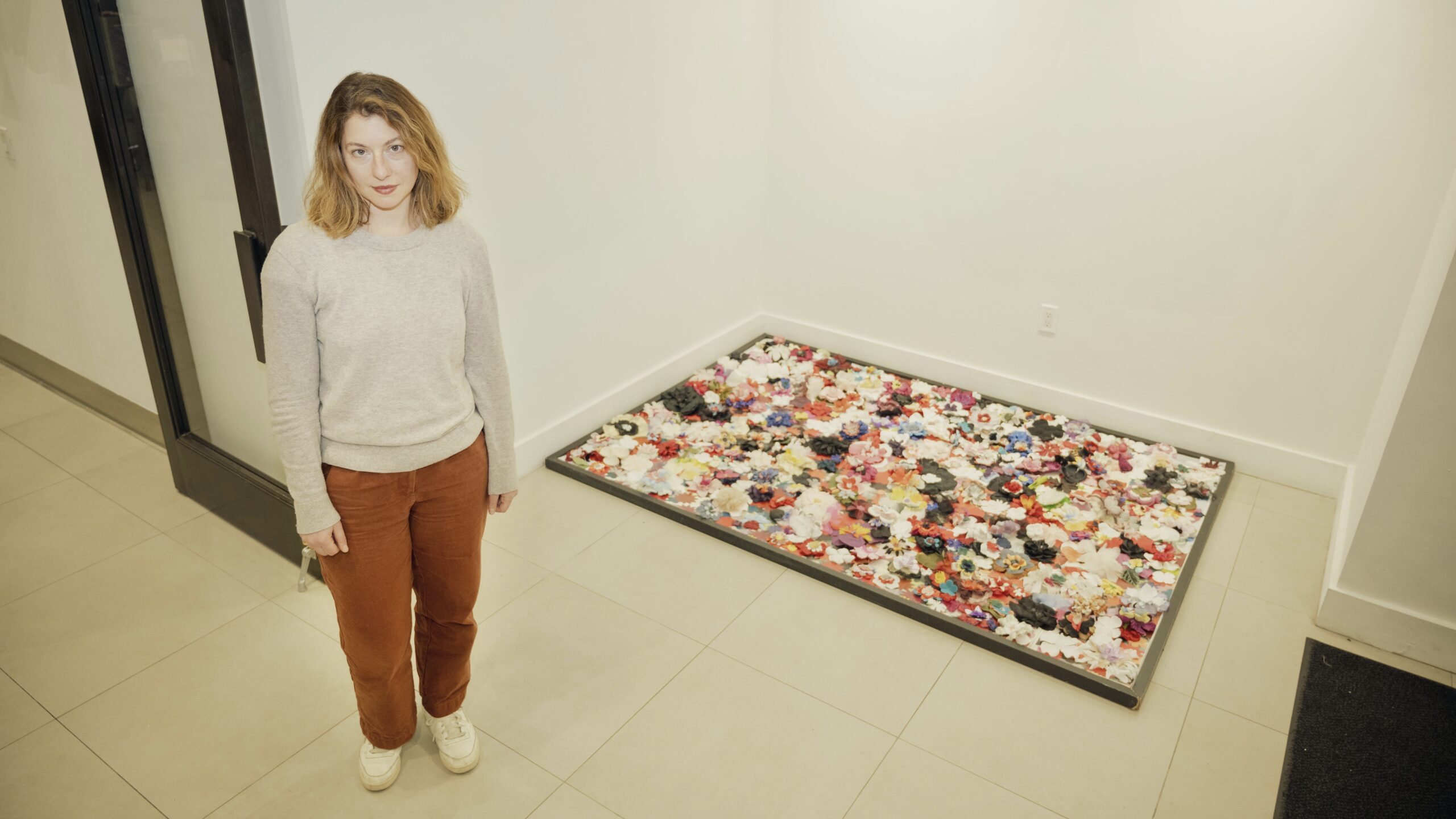
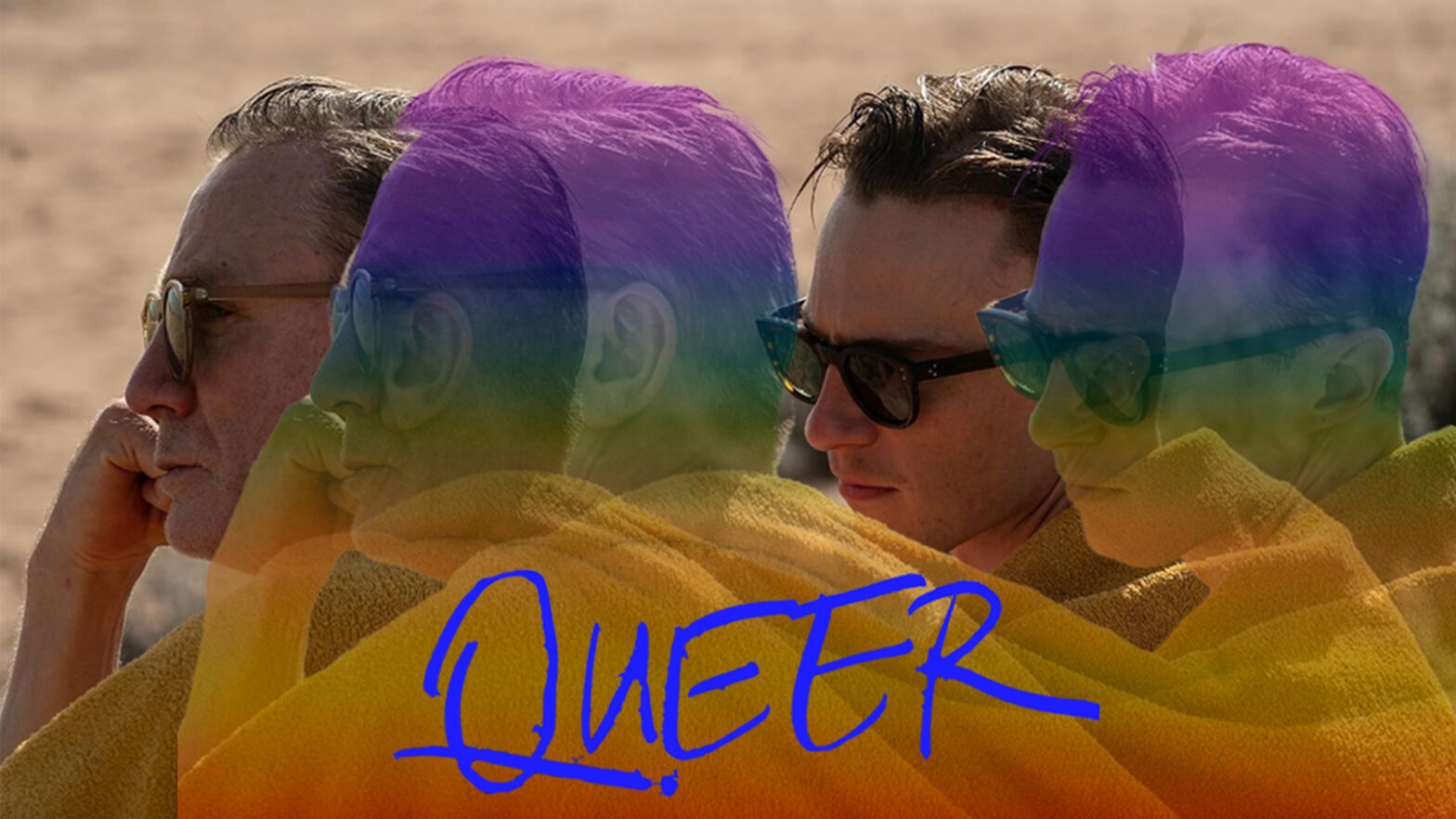
Leave a Reply